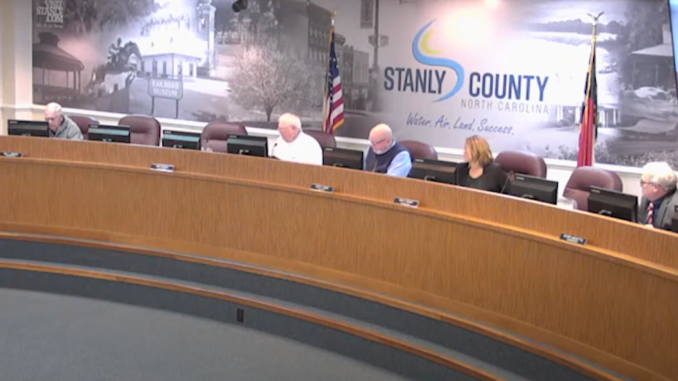
ALBEMARLE — At its February 20 meeting, the Stanly County Board of Commissioners unanimously approved a resolution that authorizes the county to enter into new opioid settlement agreements with Walmart, Walgreens, CVS, Allergan, and Teva.
With the five new national pharmacy settlements totaling $21 billion, Stanly County is expected to receive an additional $3.738 million over thirteen years from the Wave Two Settlements in order to locally address opioid misuse disorder.
The combined projected allocations for the county from both the first and second round of settlements now sits at $8.4 million.
“In order to receive these Wave Two Settlements, Stanly County must sign on to each of these five new national pharmacy settlements,” County Manager Andy Lucas told the commissioners. “And then also there’ll be a supplement to the MOA that we have with the North Carolina Department of Justice, which governs how the opioid settlement funds are used at the local level. That supplement is being referred to as the SAAF (Supplement Agreement for Additional Funds from Additional Settlements of Opioid), and the deadline to do that is April 18.”
In the county’s official resolution, it notes that it experienced 27 overdose deaths attributed to opioid misuse in 2021, with a rate of 43 per 100,000 residents, exceeding the statewide rate of 38.5 per 100,000 residents. Between 2000 and 2021, the opioid overdose epidemic claimed the lives of over 32,000 citizens statewide.
The Centers for Disease Control and Prevention now estimates the total economic burden of prescription opioid misuse alone in the U.S. is $78.5 billion a year, including the costs of healthcare, lost productivity, addiction treatment, and criminal justice involvement.
“We need some treatment facilities in Stanly County because there are problems here that we will continue to have until we start addressing them,” House District 67 Rep. Wayne Sasser (R-Stanly) told SCJ following the Wave One Settlements. “Hopefully, we do a better job with the opioid settlement money than we did with the tobacco settlement money because we need it to get people off drugs and hopefully save lives. The opioid crisis doesn’t differentiate between economic status, community status, what sex you are or what color you are — it’s an equal opportunity offender.”
The Stanly County Board of Commissioners will hold its next meeting on March 6 in the Gene McIntyre Room at Stanly Commons.
